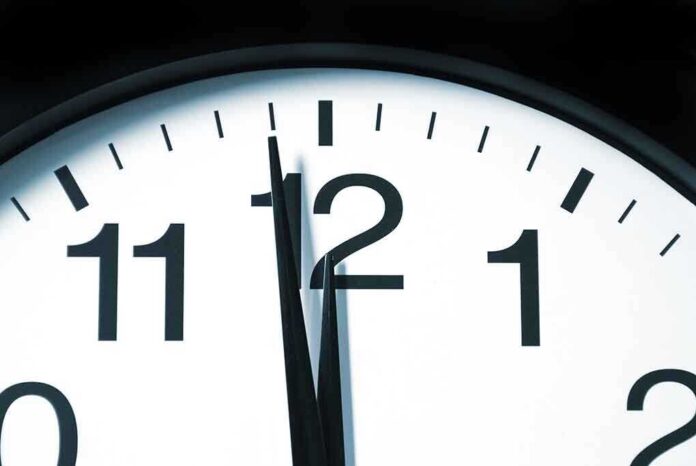
Can the simple act of skipping daylight saving time be the key to better health for millions of Americans?
Story Snapshot
- Daylight saving time (DST) may have adverse health effects.
- Stanford study suggests skipping DST could improve public health.
- Hawaii and Arizona benefit by opting out of DST.
- Legislative debates on DST continue without resolution.
The Health Implications of Daylight Saving Time
Daylight saving time, a practice once adopted to conserve energy during World Wars, is now under scrutiny for its health implications. According to Stanford Medicine sleep researchers, the biannual clock changes bring about a host of health risks. These include spikes in heart attacks, strokes, and traffic accidents, especially in the days following the transition. The evidence suggests that maintaining a consistent standard time could mitigate these risks significantly.
Americans could be healthier without daylight saving time, Stanford study suggests https://t.co/9C2W61Pbxe
— FOX8 WGHP (@myfox8) September 18, 2025
The American Academy of Sleep Medicine (AASM) has also weighed in, recommending the abolition of DST in favor of permanent standard time. Their position is backed by a growing body of research linking DST transitions to negative health outcomes, highlighting the importance of aligning human activities with natural circadian rhythms. The question remains: can lawmakers be swayed by scientific evidence to make a change in the near future?
Why Hawaii and Arizona Stand Apart
Hawaii and Arizona have long opted out of observing daylight saving time, citing their geographic stability in daylight hours as a reason. This decision places them in a unique position compared to other states, which continue to grapple with the twice-yearly time shifts. Residents of these states reportedly experience fewer health disturbances related to DST transitions, lending credence to arguments for abolishing the practice nationwide.
For those living in states that observe DST, the potential benefits of joining Hawaii and Arizona in opting out are clear. Reduced health risks, improved sleep patterns, and increased overall well-being are just a few of the anticipated advantages. Yet, despite the mounting evidence, the debate over DST continues to be a contentious issue at both state and federal levels.
Ongoing Legislative and Public Debate
While the legislative landscape remains largely unchanged, there is an ongoing public and scientific push to reconsider DST. Legislative proposals to abolish or make DST permanent surface periodically in Congress but have yet to gain the necessary traction. The debate hinges on balancing the perceived economic benefits of extended daylight hours against the documented health risks.
Public opinion appears to be shifting, with many Americans expressing frustration over the clock changes. There is a growing consensus among sleep experts and health professionals that the risks outweigh the benefits. As the debate continues, it remains to be seen whether lawmakers will heed the call for change, prioritizing public health over tradition.
The Future of Daylight Saving Time in America
The future of DST in America is uncertain, with health experts and legislators alike grappling with the complexities of the issue. The potential for permanent standard time offers a promising alternative, one that could lead to healthier lifestyles and reduced healthcare costs. However, the path to change is fraught with political and social hurdles.
As research continues to illuminate the drawbacks of DST, the push for reform is likely to intensify. The benefits of abolishing DST are clear, but the decision ultimately lies in the hands of policymakers. Whether the focus shifts from political inertia to proactive health measures will determine the course of DST’s future in the United States.















